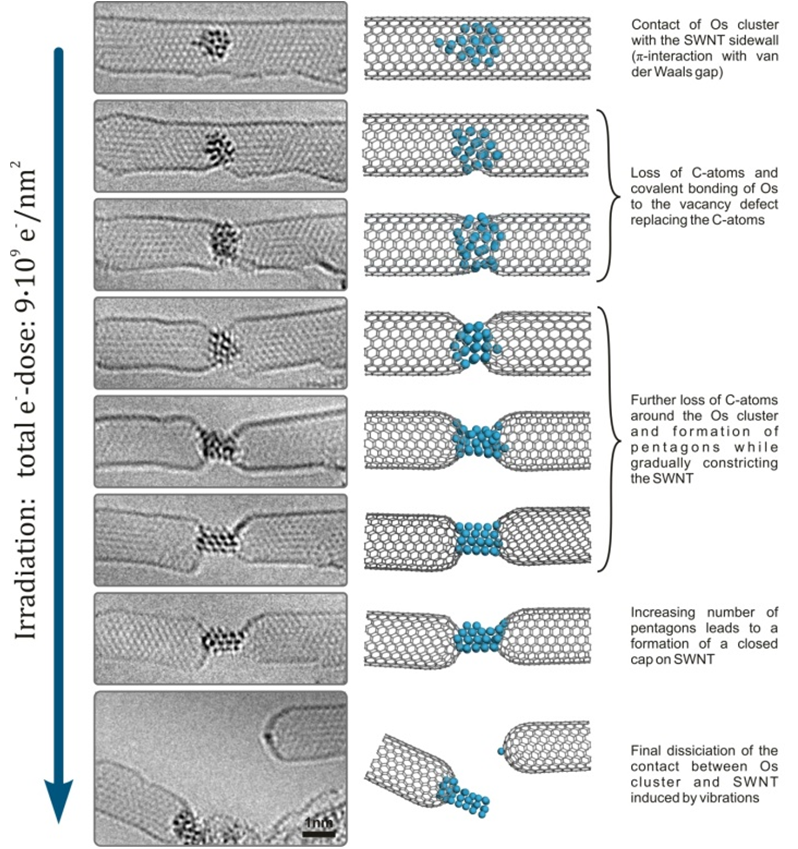K. Cao, J. Biskupek, U. Kaiser
Metal-carbon interactions in CNTs
The knowledge about metal-carbon interactions is essential to understand the important metal-carbon catalysis and formation of metal carbide. In order to investigate the interaction between metal and carbon at the atomic scale, we apply atomically thin single-walled carbon nanotubes (SWNT) as nano test tubes for encapsulating metal clusters. We obtain several kinds of transition-metal nanoclusters in the SWNT by filling in it corresponding organometallic molecules which spontaneously decompose under heating. The structure of these samples and the in-situ metal-carbon interactions are investigated by aberration-corrected TEM. The electron beam in TEM is simultaneously used as an energy pump for introducing structural changes and as an imaging probe to follow them at the atomic scale [1].
We reveal and explore reactions of nm-sized clusters of technologically important metals in transparent carbon-nano-test-tubes using time-series imaging by aberration-corrected TEM employing the electron beam simultaneously as an imaging tool and stimulus of the reactions. We elucidate the metal-carbon bonding and their dynamics on the atomic scale and use the results for arranging the transition metals in the order of their binding with carbon and their catalytic activity. This procedure will improve the understanding of nanocatalysis and will allow the design of better nanocatalysts in the future.
[1] Stephen T. Skowronet. al. Chemical reactions of molecules promoted and simultaneously imaged by the electron beam in transmission electron microscopy, Acc. Chem. Res., 2017, 50, 1797–1807
[2] Thilo Zoberbier et. al. Interactions and reactions of transition metal clusters with the interior of single-walled carbon nanotubes imaged at the atomic scale, J. Am. Chem. Soc. 2012, 134, 3073−3079
| Prof. Andrei N. Khlobystov, Prof. Elena Besley (Nottingham University, UK) |
DFG and MWK Baden-Württemberg in the frame of the SALVE project

